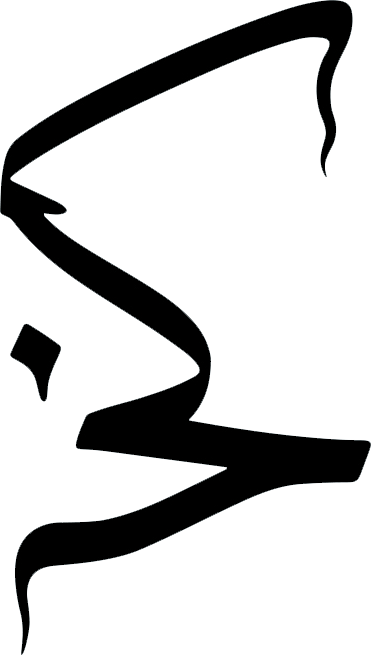WHAT YOU KNOW: Aria Safar
by Laila Iravani, RUOKAY.com
Khabar Keslan presents the second installment of “What You Know,” a documentary series by Laila Iravani that brings you up front and personal with first generation Iranian Americans.
So my name is Aria Safar, or as I like to say to my American friends Arya Suh-Faar. My parents are Siamak and Mehrshid, and they came to the U.S.—or North America I should say—after the revolution. I was born in Chicago, we moved to Vancouver when I was one, then moved from Vancouver to LA when I was about five.
I grew up in suburbs that were very un-Iranian. I remember in my high school, for example, each year was about 600 people and there was one other Iranian besides me, so it was pretty uncommon to have Iranian's around me. There were a lot of times of feeling 'othered,' especially after 9/11. That was definitely a major part of forming my identity...
I think that growing up, especially as Baha'i's, because there are so few of us that we have to be the token Baha'i for whomever that is we’re talking to and so a lot of our character, everything that we do is being judged and is going to be applied to every single Baha'i they might meet—and similarly with being Iranian. And so it's not fair, but it is really the burden that we have. And I think it is our job to explain our culture, our backgrounds, and it's somewhat our duty.
The first time I saw myself as Iranian—I think I was five or six, and I took my snacks and stuff to school and I started offering them to my classmates because that's what you would do. And as soon as I offered them, they took them but didn't really offer me anything in return, so this whole art of ta'arof because very apparent to me. And I went told my parents, I said, "What should I do? They don't offer any food." And they're like "...You can't do that." But it was one of those moments; I realized, OK, there's a different world at home and a different world at school. And my name is very, being Aria, it's unusual, so people always wonder "Where are you from?" or the question, "Where are your parents from?" or blah blah blah. So it was always there, surface level, but I think it became very intense around after 9/11. I was 14 and you know people would make—maybe sometimes they would make almost knowing jokes but they were trying to be funny, not trying to be overtly racist; in some cases, they were being overtly racist. That’s when I really saw myself or felt myself being this other, different, and not like everybody else.
I think that after the travel ban and things like that, I saw that there was a huge swelling of support and I thought that was great, that was really awesome. At the same time we are fairly affluent and educated and we have these privileges too so I think it's helpful for us to speak out when it’s somebody like the CEO of Uber, or all these other Silicon Valley giants... And they have been fairly progressive too so...
There's a sense of—there's open Jewishness, and that's OK. But there isn't open Iranianness in the same way. I feel like the Iranian American community is very fractured into these different groups. And I would say at least in LA especially along religious lines. And so that's the first thing. And I think also our parents teach us not to really trust other Iranians. We have an issue with identifying ourselves in the same way, like, do we call ourselves Persians, do we call ourselves Iranians, do you identify first with your religion, do you identify first with your whatever, your parent's background? Because we have faced prejudice and so I think its scary for us to be out and proud. And I mean the Jewish community has too, but it wasn't an easy road. I mean they've been in this country for at least over 100 years, so in like large numbers, but we've just came here 30, 40 years ago in large numbers...
Look, people are gonna make assumptions about what an entire group is, or an entire country is based on these limited experiences that they've had. And I think especially a country like Iran, which is depicted in the media as, you know, this uniform theocracy that's so backwards, we have to dispel that constantly, and similarly with other groups we also have to stand in and say and that is not true, that is not a uniform depiction of that group. That is the whole purpose of us, almost, being here sometimes is because we are very contrarian as Iranian Americans to the image that is portrayed of Iran in the media, and so that's another reason why we do have to stand in. It's different than being a French immigrant in the U.S., it's not such a tumultuous identity to have.
ARIA SAFAR joined Mayor Eric Garcetti’s Office of Economic Development in April 2018. He currently serves as the Economic Policy Manager for the technology industry. Prior to joining the Mayor’s Office, Aria ran business operations for a legal tech startup acquired by Ernst & Young (EY). Before EY, he practiced law in New York at global law firm WilmerHale, and clerked for a federal judge in Memphis, Tennessee. Aria received his Bachelor's from UCLA, his Masters from the London School of Economics, and his JD from UC Berkeley.
